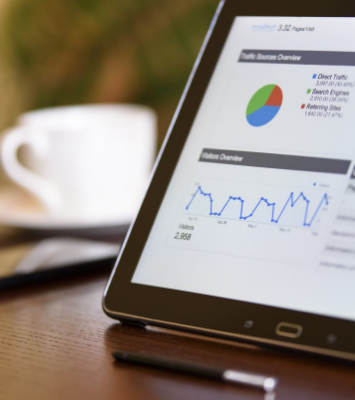
When Should You Start Google Ads?
Google is the top-used search engine in America as of 2021, maintaining 92% of the market; this makes sense because consumers will use Google over five billion times each day. So if you’re like me, you wonder where Google gets all of its money and how it can grow as much as they have, well, the answer to that is Google Ads. So, how do you know what Google Ads is, and when should you start Google Ads? Here are some tips to help you better understand.
What Are Google Ads?
Google offers online advertising at a cost known as Google Ads. It uses relevant keywords to match advertising and promotions with the search. These ads operate under a Pay-Per-Click (PPC) system; other marketers can bid on specific keywords to get the top spot. Bidding is setting the maximum amount you are willing to pay for the ad. You can also set your maximum daily budget for the ad to ensure that you don’t overuse your set budget for each day.
There are three different options marketers have when bidding:
- Cost-Per-Click (CPC): The actual amount you pay when someone clicks on your ad.
- Cost-Per-Mile (CPM): The cost per 1,000 impressions. Advertisers running CPM ads set their desired price per 1000 ads served and pay each time their ad appears.
- Cost-Per-Engagement (CPE): advertisers only pay when users actively engage with ads.
When Should You Start Google Ads?
You may be asking yourself if you are ready to start Google Ads or wondering when you should start them. First, you need to look at the customer demand that your business has right now. If you are not getting searches for your product or service, Google Ads is not right. It could be the keywords you have fallen under that just aren’t getting you enough business, so look into your keywords and ask yourself if they are searched enough for you to justify putting efforts into Google Ads. When you decide you are ready, it’s time to move into research, look at your competitors, and see what keywords they are using. If they have been using keywords for a long time, they are working; the longer the use of a keyword, the more relevance it has.
The decision is made, and you have keyword research in hand; it’s time to move on to your budget. You will need to calculate the maximum CPC you are willing to pay. It would be best if you targeted keywords that are in your budget. Do not push your budget. There is a formula for you to use that will help you set a maximum CPC. That formula is:
Maximum CPC = (profit per customer) x (1 – profit margin) x (website conversation rate)
The budget and keywords are set; it’s time to create your ads. Your ads need to be outstanding and relevant. Creating eye-catching advertisements will help you reach your target audience successfully. With each great advertisement created, link them to a specific page on the website, do not link them to the homepage. Bringing the customer directly to the advertised product will give them a pleasant experience on your site; you don’t want them to try and navigate through your pages looking for one thing, which leads to frustration and the user leaving your site.
How To Better Rank?
When trying to rank better, Google takes your bidding amount and pairs it with your quality score assessment. When you add the two together, you get your ad rank. You can always increase your bid to try and get a better rank, but there are always more options that don’t require you to raise the bid. The first thing to revise is your keywords, and there are many keyword tools that you can use to see what ones are strong enough for you to rank on and what ones aren’t. These tools also show you similar words in a less competitive market. The second step is looking into the ad relevance; if you advertise something that has nothing to do with your keywords, it will get looked over. Try adding your keywords to the ad in different places. This will also apply to the meta tags on your website.
We dove straight into the waters of where 3.5 billion people go a day learned a lot about Google Ads, keywords, ranking, and if this is right where you need to be. If it wasn’t said enough, keywords are the main takeaway. If you have poor unrelative keywords, Google Ads will not work. So now you know how Google Ads works. Are you ready to jump in?
If you want to learn more about if Google Ads or social media advertising is a good fit for your marketing strategy, contact KMD Marketing and Design. We can help guide you on starting the process internally or what a partnership would look like to manage your ad strategy.







